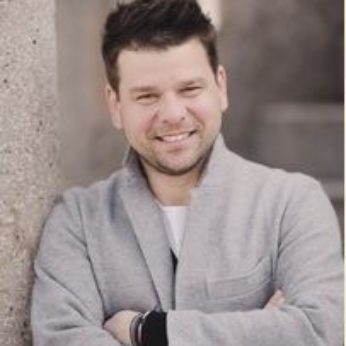Composer: Antonin Dvořák (b. 1841 - d. 1904)
Performance date: 28/06/2022
Venue: St. Brendan’s Church
Composition Year: 1876
Duration: 00:33:44
Recording Engineer: Simon Cullen, Ergodos
Instrumentation: vn, vc, pf
Instrumentation Category:Piano Trio
Artists:
Veronika Jarůšková -
[violin]
Boris Giltburg -
[piano]
Peter Jarůšek -
[cello]

Antonín Dvořák [1841-1904]
Piano Trio No 2 in G minor [1876]
1. Allegro moderato
2. Largo
3. Scherzo – Presto, Trio – poco meno mosso
4. Finale – Allegro non tanto
This Trio was composed in seventeen days some months after the death in infancy of his first daughter. However despite the minor key this Trio bursts with high spirits and youthful energy. There are some moments of introspection, especially in the serene Largo, but the music feels more like a young man shouting from the rooftops his joy in life. His tremendous, free flowing melodies are simply irresistible.
The Allegro moderato bursts into life with a jolting, repeated call to attention that returns throughout the movement as a signal. It leads off the development and punctuates the rest of the movement with its insistent presence. Out of this demanding presence grows a passionate melody, a sensuous longing for life. This single melody and its call to arms become the seed from which the whole movement develops music to affirm and celebrate life. It is also music that demands passionate commitment from the three musicians.
The cello opens the slow movement with the quietly impressive main theme, which is taken on an unexpectedly mysterious journey. As the movement progresses the shadows seem to lengthen before being blown away by the wildly extrovert Scherzo. Brahms, who jump-started Dvořák’s international career, was openly envious of his protégé’s melodic genius, a gift that is increasingly apparent as this work leaps from one great melody to the next. Dvořák was close to the great Czech tradition of folk music with all its rhythmic subtleties as heard in the exciting main Scherzo theme and the Trio’s sunny Bohemian folk dance.
The Finale is even more boisterous with a wild polka reminding us of the exuberance of his instantly successful Slavonic Dances. With the polka as the main theme, Dvořák sets the musicians off on a whirlwind adventure until the final celebratory finish.
Francis Humphrys
Copyright © 2025 West Cork Music. All rights reserved.
Designed and developed by Matrix Internet